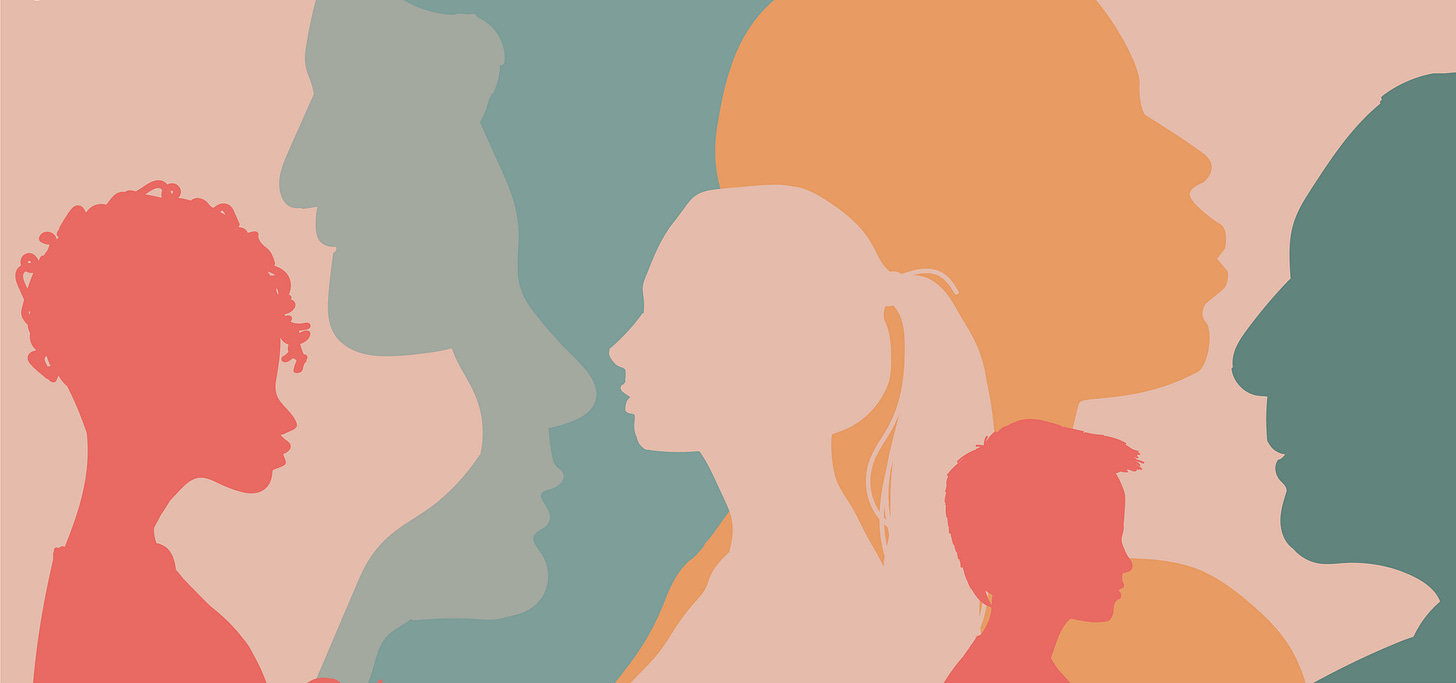“Betty Ford is the reason addiction treatment became acceptable for women,” my mom offered as we spoke about Women’s History Month. “Your next story should be on her.”
When people suggest I do something, typically I’ll jot it down, or I’ll disregard it immediately, but this time, I was in - instantly. Plus, I have way too many credits remaining on Audible, so that was a real incentive.
I spent the next few weeks consuming Lisa McCubbin's book, ‘Betty Ford - First Lady, Women’s Advocate, Survivor, Trailblazer,’ which, in my opinion, is titled perfectly, though I might rearrange the order of her descriptors. As I see it, she may have been our first real influencer.
As the narrator recounted Betty’s days as a young dancer, I listened with enthusiasm, imagining her move to New York at 19 in pursuit of her dreams. Dreams slowly shifted as she realized relationships and social gatherings were more valuable to her than performing on stage (relatable).
Answering her mother’s plea to come back home, Betty moved back to Grand Rapids, MI. She spearheaded fashion events, volunteered in her community, and continued her dance journey, this time as a teacher, both in her own neighborhood, as well as an all-black neighborhood, despite criticism within her own household.
Influenced by her community, Betty agreed to a conventional marriage which ended after a few years, though that time strengthened her own independence and ability to nurture, which would prepare her for a future as a mother, and First Lady of the United States (1974), marrying Gerald R. Ford in 1948.
Having four kids over the span of seven years filled Betty’s plate, and on one fateful day in the 60s, she pinched a nerve in her neck, introducing her to a life with pain, pills, and alcohol.
Labeling all prescription drugs in the US didn’t become mandated by law until 1979 - one year after Betty Ford entered announced her addiction to the prescribed pills; if my math is right, that tells me we went over a century without public conversations about addiction. How could that be? We’ve all seen Dopesick, yes?
Women’s Advocate: the reason Ford became an avid supporter of the Equal Rights Amendment (ERA) could be debated - one might say it was seeing her mother take charge of the household after her father’s surprising death, showing her what a female is capable of, mentally and financially.
Perhaps that added to the Betty Ford cocktail, but as I’ve observed with my own shared family experiences, we all feel something different. Individually, we decide what is important, what will plague us, and who we’ve granted the power of influence.
Working with lobbyists to combat systemic pay discrimination, Ford came to understand the importance our legal system had on true equality. Never shy to go on record, Betty referred to gender equality as “our most basic issue,” and during Ford’s time in office, our Federal Government saw a 14% increase in female appointments in the White House - higher than all previous administrations. You go, girl.
Survivor: During a routine physical examination in Ford’s first year at the white house, she was diagnosed with breast cancer. Only months into her husband’s presidency, and in the aftermath of Nixon’s Watergate, Betty announced she would be undergoing surgery, encouraging women across the nation to get annual mammograms. Thousands of lives were saved as society was given a new understanding of a once-taboo topic.
Trailblazer: Understanding her influence without attaching ego, Ford said, “Lying in the hospital, thinking of all those women going for cancer checkups because of me, I’d come to recognize more clearly the power of the woman in the White House. Not my power, but the power of the position, a power which could be used to help.”
And help she did, not only through her advocacy and financial contributions towards breast cancer but through her continued honesty. In 1978, months after the Fords left office, Betty announced her addiction to prescription pills and alcohol. “I would mix pills and cocktails every day,” Ford recalled, “I had no idea it could be problematic.”
In 1982, with help from two friends who encouraged her to use her namesake, the former First Lady opened The Betty Ford Center, which became the first place to mandate an equal number of beds for women, recognizing the lack of available resources.
In 1983, Elizabeth Taylor became the first of many celebrities who would seek addiction treatment from The Betty Ford Center, which illuminated the national epidemic our country still faces today.
First Lady: Using her voice to express what authentically mattered was Betty’s superpower; it only makes sense the trajectory would lead her to continue just that. Ford affected real change for our country and, more importantly, for everyone she seemed to connect with, on either side of the political aisle, within her own home, even giving an up-and-coming fashion designer the opportunity of a lifetime by collaborating to showcase fashion that doesn’t break the bank. Consider me influenced.
In closing,
I am most struck by Betty Ford’s open honesty during a time when it was more common for women to stay quiet, and through her drive and tenacity, she changed the world, making a lasting impact on access to healthcare throughout the United States.
As always, there is more work to be done, but whenever I get discouraged, I’d like to remember the power of one.
No more suffering in silence - use your voice, and use your resources.
Resources:
Conquer Addiction - Rehab Reviews
SAMHSA - Find Treatment
Citings:
Betty Ford | First Lady, Women's Advocate, Survivor, Trailblazer
ACLU - Women's Rights - Betty Ford
40 Points - Breast Cancer - Betty Ford



